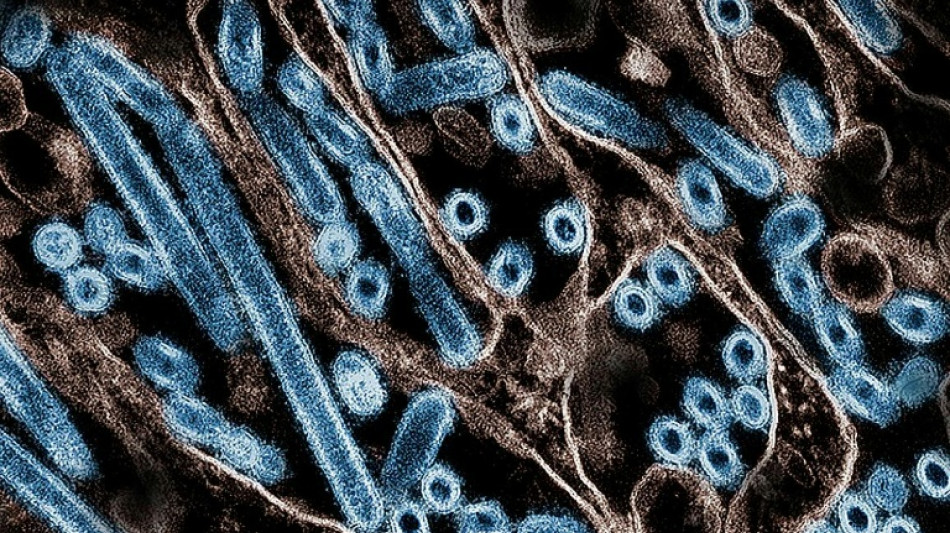US reports first severe case of bird flu in a human / Photo: HANDOUT - National Institute of Allergy and Infectious Diseases/AFP
A patient in Louisiana has been hospitalized with a severe infection of avian influenza, marking the first serious human case in the United States, the Centers for Disease Control and Prevention (CDC) announced Wednesday.
The case brings the total number of avian influenza infections in the United States during the current 2024 outbreak to 61.
According to the CDC, the patient was exposed to sick and dead birds in backyard flocks. However, no additional details, including the individual's prognosis, have been disclosed.
The case was confirmed last Friday, according to the CDC. Genetic sequencing revealed that the H5N1 virus in the patient belonged to the D1.1 genotype.
This genotype has recently been detected in wild birds and poultry in the United States, and in human cases reported in Washington state and in Canada's British Columbia province.
The D1.1 genotype differs from the B3.13 genotype, which has been identified in dairy cows, some poultry outbreaks, and human cases with mild symptoms such as conjunctivitis.
A handful of US cases have had no known animal source of infection, but health authorities say there is still not enough evidence to suggest human-to-human transmission.
"This case underscores that, in addition to affected commercial poultry and dairy operations, wild birds and backyard flocks also can be a source of exposure," the CDC said.
Despite these developments, the CDC continues to estimate the risk to the general public is low.
A multistate outbreak of the flu -- technically the Highly Pathogenic Avian Influenza, or H5N1 bird flu -- was first reported in March in dairy cows.
The rising frequency and diversity of mammalian infections in recent years have heightened concerns about the virus's adaptability and its potential for cross-species transmission.
T.Deshpande--BD
